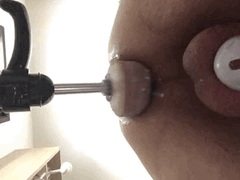-
Similar Content
-
"This slut is here for us to use, he can take it all so have fun"
By Hunter22,
- cumdump
- doublefuck
- (and 5 more)
- 14 replies
- 1,271 views
-
- 28 replies
- 13,996 views
-
- 0 replies
- 1,875 views
-
- 0 replies
- 187 views
-
- 27 replies
- 13,152 views
-







Recommended Posts
Create an account or sign in to comment
You need to be a member in order to leave a comment
Create an account
Sign up for a new account in our community. It's easy!
Register a new accountSign in
Already have an account? Sign in here.
Sign In Now